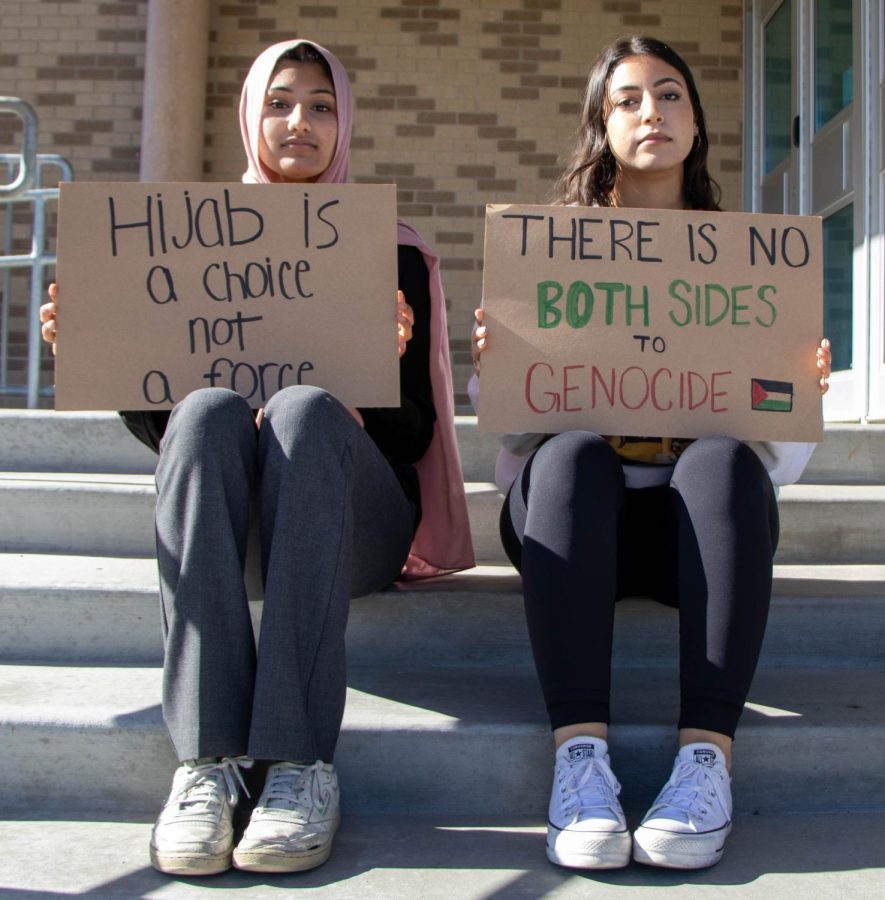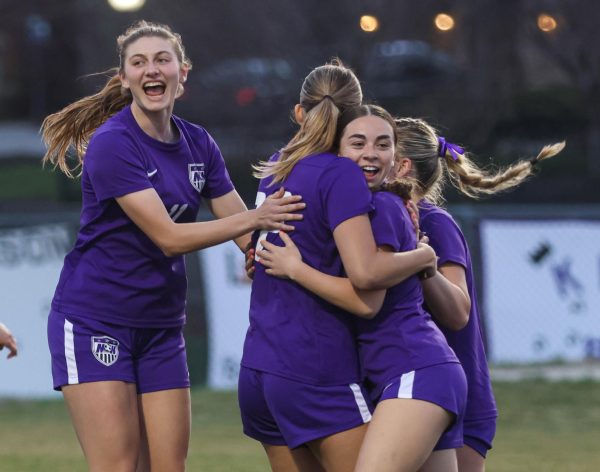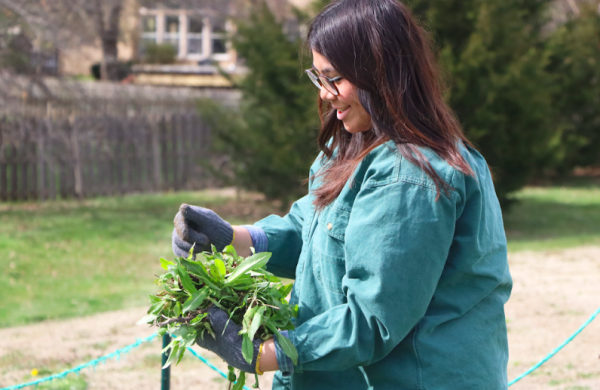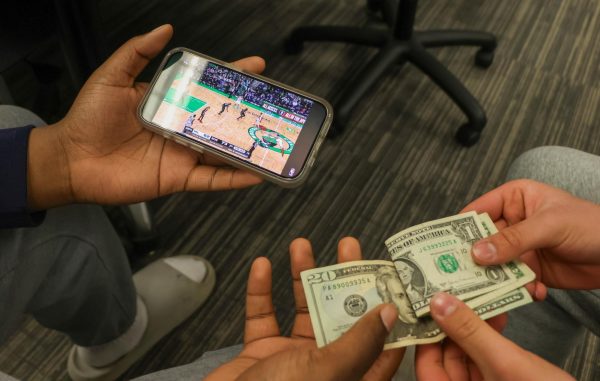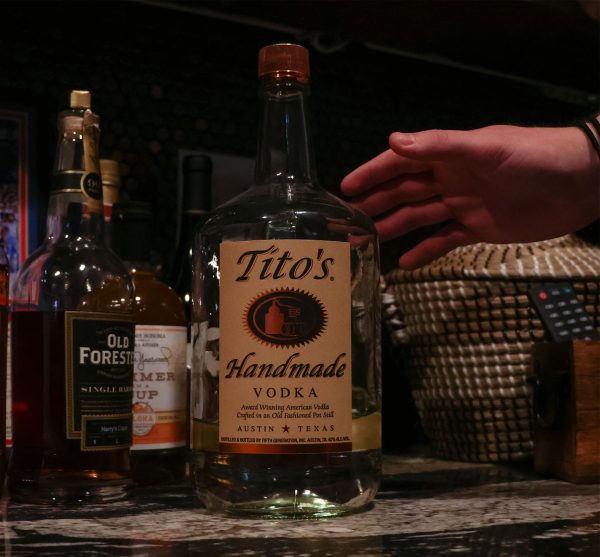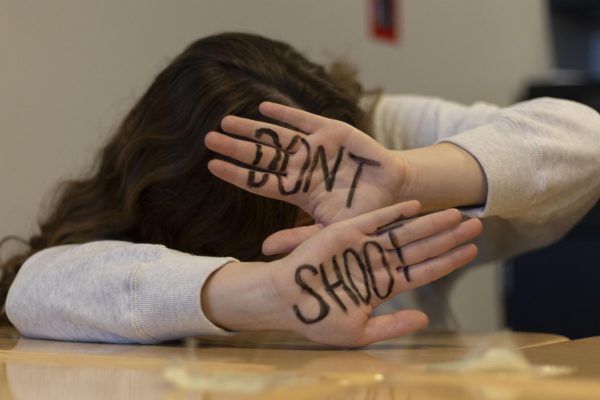Unnoticed. Unaddressed. Uncovered.
A deeper look into how violence in various Middle Eastern countries affects students involved and how the BVNW community can help.
Sophomore Safa Qureshi and senior Hiba Issawi hold signs to represent protests in Middle Eastern countries and their own beliefs.
Pakistani junior Wania Munir said because people have become desensitized to violence in the Middle East, the media does not give those countries the attention they deserve.
“When people think of the Middle East, they generally think of a war-torn area…but no one ever talks about it, it’s never discussed, you barely see anything in the media,” Munir said. “Hundreds of people are dying, but it’s kind of like ‘whatever it’s a war-torn area.’”
Sophomore Safa Qureshi, who is also Pakistani and Muslim, said that because violence in the Middle East has been occurring for decades, it has become more normalized.
“You can’t compare and contrast the blood of wars because honestly, that’s not even relevant. But you can definitely compare the reactions of people outside of it, like [in] America,” Qureshi said.
Qureshi said it is typical of the Western narrative to only post about what is being shown in Western media and never take action beyond posting, such as attempting to aid those in need.
“People don’t even realize that they’re biased because they don’t realize that they’re only posting for something or like they’re only talking about one thing, [or] they’re only aiding one thing,” Qureshi said.
Munir explained that false information from illegitimate news sources also plays a part in whether people choose to educate themselves on Middle Eastern news.
You can’t compare and contrast the blood of wars because honestly, that’s not even relevant. But you can definitely compare the reactions of people outside of it like [in] America. — Safa Qureshi
“When there’s false information present, people don’t know what’s true and what’s not, [so] people just tend to stay out of it,” Munir said.
Senior Hiba Issawi has seen the results of false information spreading in the recent news over the death of Mahsa Amini and the related protests in Iran.
According to press reports, Mahsa Amini was an Iranian woman arrested on Sept. 13 for wearing “inappropriate attire.” Shortly after being arrested, she fell into a coma and had bruises on her legs. Amini died in a hospital, but people raised questions as to whether her death was caused by the authorities.
Munir said it is heartbreaking to see women in Iran being forced to wear a hijab while seeing women in other parts of the world, such as France, not being able to wear a hijab.
“Iran has very strict policies on the hijab and, Islamically speaking, that’s not allowed. You’re not allowed to force anyone to do anything, especially wear the hijab,” Munir said.
Freshman Melika Zabet emphasized the difference between simply being a citizen under the Islamic Republic of Iran and being a practicing Muslim.
“Islamic Republic regime is very different from the religion of Islam and very different from being Muslim. Islam is a personal choice, a personal family thing, where that’s your lifestyle,” Zabet said.
Issawi believes that the media is emphasizing the wrong details of the protests occuring in Iran.
“The way that the media is portraying it, they’re kind of making Muslim women look oppressed because I wouldn’t say that’s a bad thing that women want to wear the hijab. Like, there are [more] women that have the choice than are forced to put on the hijab,” Issawi said.
Munir does not believe Islam is constricting, and she said the fact that the media portrays it as such, highlights the bias in news.
“I feel like the religion of Islam does get a bad reputation for some things, and we’re associated with terrorism, even though a group of bad people doesn’t make the whole religion bad,” Munir said.
Issawi said she believes religious bias plays a part in the lack of media coverage Middle Eastern wars receive, partially because of the increased prejudice toward Muslims after 9/11.
“The way people used to feel sympathetic for [Middle Eastern countries] kind of left because [people] think in their head, ‘Oh, they’re deserving of this because of what they did in 9/11’ even though that has nothing to do with us,” Issawi said.
Issawi said the media needs to do a better job of portraying the violence occurring in many Middle Eastern countries because of the chaos it is creating.
“I’ve seen little kids be killed. I’ve seen families be torn apart. I’ve seen it all,” Issawi said.
Munir also emphasized how the increasing amount of destruction and death is taking its toll on the Muslim community.
“People are dying, [there] are holy places being destroyed, and it’s not a small thing because this is a big issue. It just sucks, and people are [also] being thrown out of their homes, being killed and torn apart,” Munir said.
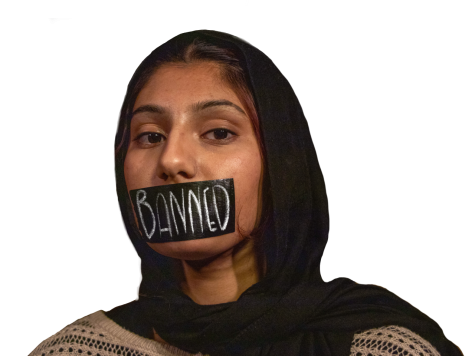
Zabet said that while her immediate family now lives in the United States, they are still heavily impacted by Middle Eastern conflicts, specifically in Iran.
“Even though they’re here, they see all those people fighting for their basic human rights…[and] they can feel the pain that they felt when they were raised in that country,” Zabet said.
When Munir has attempted to repost information about conflicts in the Middle East, she said her content was taken down and her account was threatened to be banned by Instagram.
“My people are dying. People are dying and I can’t even post about it? It sucks,” Munir said.
Issawi experienced something similar when she tried to share about the Palestinian War on social media and she said her content was taken down, as well.
“There was one time where my account was under surveillance by Instagram because I was supporting a fundraiser [for Palestinian hospitals], and I had it attached to my bio on Instagram,” Issawi said.
Qureshi said she has seen censorship occur on social media platforms such as TikTok and Instagram.
When The Express contacted Instagram for a statement on this issue, they had no response.
“Posts are repeatedly taken down because they’re about Palestine, the [Chinese] Uyghur Muslims, or Syria. Anything [about] any Muslim country or anything Muslim is repeatedly taken down,” Qureshi said.
Despite this, Zabet said teenagers can help by educating themselves and paying attention to legitimate news sources.
“Finding authentic sources…on social media, then going out and doing your research on articles written by Middle Eastern people, [gives] a good explanation on what’s happening in the Middle East,” Zabet said.
Issawi emphasized the importance of teens receiving their news from primary sources rather than mass media.
“It’s really important [that] people read or educate themselves with firsthand resources, rather than paying attention to what Fox is saying or what CNN is saying,” Issawi said.
Zabet believes the BVNW administration should use their influence to share accurate information on current Middle Eastern conflicts with the BVNW community.
“If these issues are being written about in the newspaper, read the newspaper, and administrators [should] put more time and effort into addressing all…these things,” Zabet said.
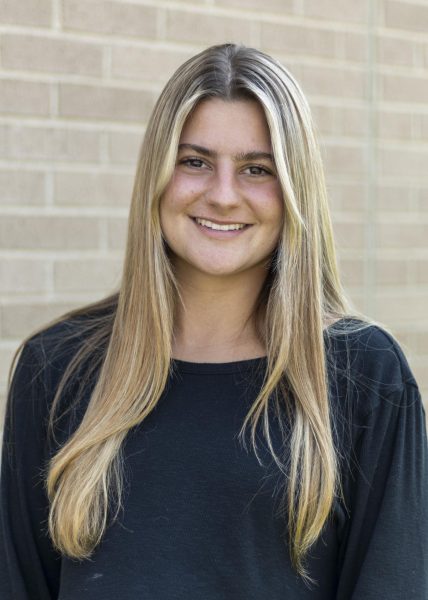
Alex Cowdrey is a senior and Managing Editor for “The Express.” This is her third year on staff as a writer and designer. Outside of newspaper, Alex is involved in Team up for St. Jude’s, NHS, Quill and Scroll, and girl’s soccer. In her free time, she enjoys spending time with friends and family, playing soccer, and being outside. Alex is extremely excited to take on the role of managing editor and cannot wait to see where this year takes us as a staff!
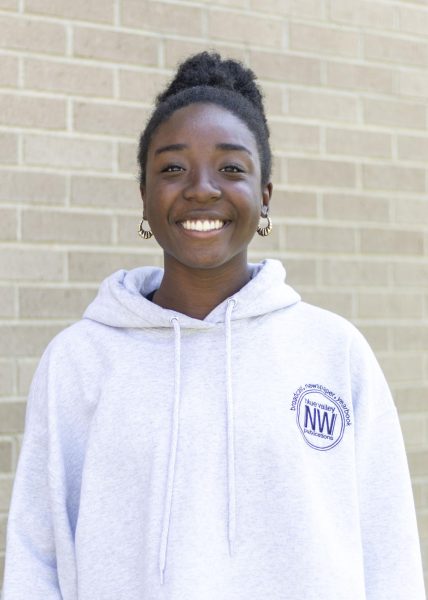
Saraphina Wambi is a senior and a writer for “The Express” as well as the host of the “BVNWspeaks” podcast. This is her second year on staff and outside of newspaper, Saraphina is student body President, BSU President, Model UN President, SNHS president, Gold Out KC (NW chapter) founder and president, and involved in girl’s tennis, HOSA, Mental Health Board, BVNW Ambassadors, NHS, Quill and Scroll, Chamber Symphony, Tri-M, and Medical Club. In her free time she likes to hang out with her friends, read, and play tennis. She is extremely grateful for the opportunity to write for “The Express” and cannot wait to see what is in store for the year!
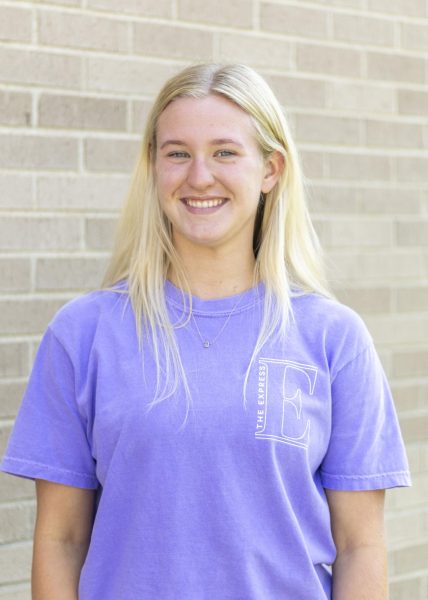
Remi Nuss is a senior and Chief Photographer for “The Express.” This is her third year on staff. Outside of newspaper, Remi is a part of the varsity volleyball team, connections, National Honor Society and Quill & Scroll. In her free time she loves to travel and spend time with her family. She is excited to spend her last year of high school in her favorite class.



